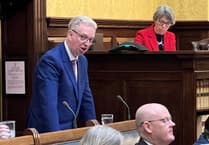Some islanders may need support to ensure they are not left behind by digital innovation, a report has found.
The Communications and Utilities Regulatory Authority has been exploring whether those on lower incomes and in receipt of benefits would benefit from different internet tariffs.
Tynwald called for a report to be produced exploring the option of social tariffs, which are available in the UK, though the uptake is said to be quite low.
In its report, CURA said that while it has identified that some people may be unable to afford broadband services, more work is needed to ascertain what benefit a tariff may have and whether it would be viable.
Prices on the island are already higher than those in the UK, which CURA said is caused by the higher cost to serve communities such as the Isle of Man.
It said that while this doesn’t necessarily mean that social tariffs are needed here more than anywhere else, but that ‘local prices must be considered alongside incomes and disposable income levels more generally’
The authority looked at a range of potential forms of support, including discounted subscriptions, a voucher scheme, direct money payments to consumers or a grant paid directly to service providers.
It said: ‘Whilst there is no right or wrong way to introduce a social tariff, the form chosen will have an impact on its ‘success’, in terms of whether it is accessible by those who need it the most. In addition, the form of the social tariff can also have wider implications.’
The report said that before anything else is done, Tynwald needs to decide whether or not to introduce a social tariff before deciding how it would be paid for and who would be eligible for it.
When looking at how a tariff would be paid for, CURA said it ultimately is a case of either the government pays or the companies pay, although each risks putting the onus on customers or taxpayers to make up the difference.
It said: ‘Where government funding is provided, this tends to be offered as part of a package alongside industry funded initiatives.
‘Whilst in theory this can help to spread the burden, in reality the cost will still be borne by consumers, either through the taxation system or other products purchased from service providers.’
The report will be considered by Tynwald in April.

.jpg?width=209&height=140&crop=209:145,smart&quality=75)



Comments
This article has no comments yet. Be the first to leave a comment.